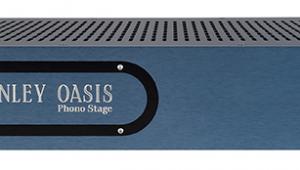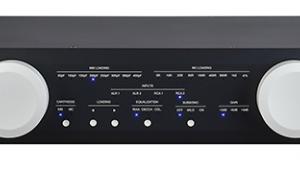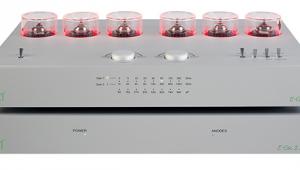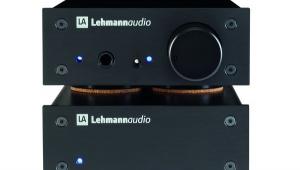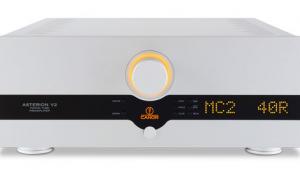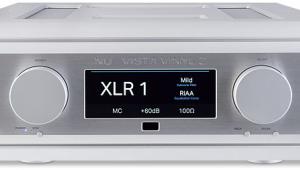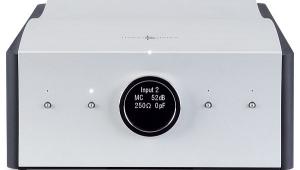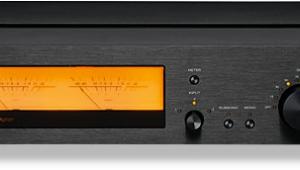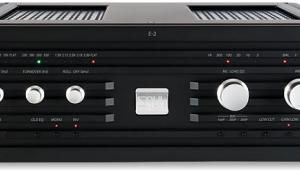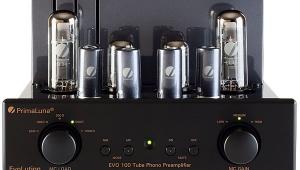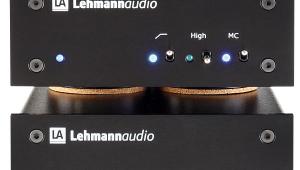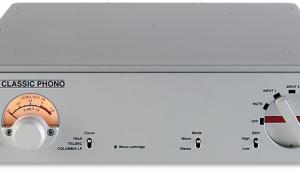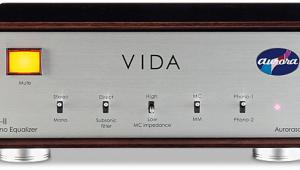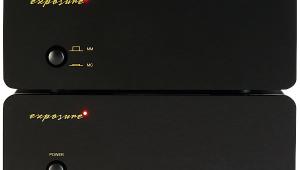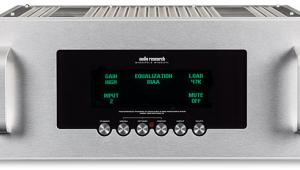Rothwell Audio Rialto (£380)
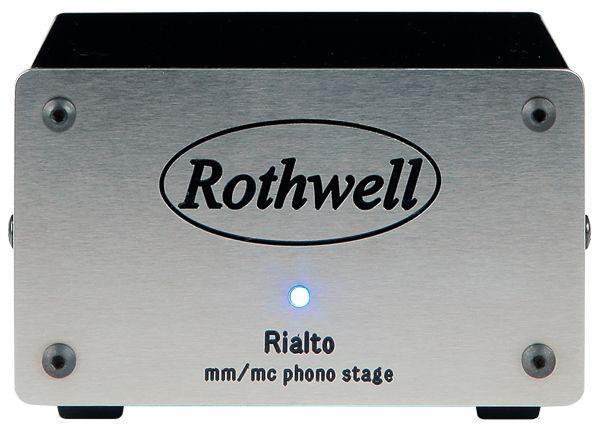
Rothwell Audio has been going for a quarter of a century, mostly making guitar effects pedals. Its hi-fi range encompasses three moving-coil step-up transformers, two MM-only phono stages, a valve preamplifier, interconnects and attenuators. Rothwell’s first phono stage was launched at the 1990 London Hi-Fi Show.
The Rialto MM/MC phono stage is tiny and perhaps no oil painting in aesthetic terms. Whereas the likes of Pro-Ject’s Phono Box RS or Musical Fidelity’s M1 LPS lavish acres of beautiful aluminium on their cases, this comes in an ‘MGB dashboard’ crackle black finished steel with silver fascia.
Indeed, it’s so nondescript in styling terms that one suspects designer Andrew Rothwell wants it to be tucked away from public view – he helpfully notes that its ultra-low power consumption means it can be left on and forgotten. The back panel has 24V DC socket, input and output RCA phonos and a substantial earthing post.
It uses internal switches to toggle between MM and MC, in order to keep the signal paths short – and the cost down. Seven stages of power supply filtering have been used, and each of its three Class A gain stages uses two discrete transistors with no global feedback, it is claimed. Instead of offering an upgrade power supply option, the company suggests that any extra funds should be spent on one of its step-up transformers, to be used in conjunction with the Rialto in moving-magnet mode.
Sweet and spacious
The Rialto offers a wonderfully even sound, for example playing The Crusaders track ‘Rodeo Drive’ from Streetlife LP [MCA Records] without fear or favour – it simply went straight to the heart of the music. The Rialto is not showy: it doesn’t try to wow with its apparent detail or bowl you over with a big, larger-than-life sort of character. Instead, it gently slips away into the music, letting what the musicians are playing and how they’re playing it come to the fore. It is transparent in the true sense of the word: a phono stage that hides itself, letting the music flow in a lovely, easy way.
The mark of a great phono stage is its consistency across genres of music, and the Rialto certainly has no favourites – cue up the 4hero track ‘Give In’ from Play With The Changes [Raw Canvas] and it gives a wonderfully organic and even sort of sound. It doesn’t impress with a big, thumping sound, but cuts to the chase and gets the feet tapping.
It is actually extremely detailed, with a wonderful directness to vocals, for example, but doesn’t throw things out at you if it’s not supposed to. Rather, it strings together all the component parts of the music together in a most satisfying way. Treble is sweet and spacious, bass taut and tuneful, and the midband is dynamic but even.
A minor quibble is that it hasn’t the most expansive soundstage width. When we listened to the old (1955) Beethoven Symphony No.5 recording for RCA by Charles Munch and the Boston Symphony Orchestra, we thought the sound had excellent depth, but the extremes of the recorded acoustic seemed a little shut-in.
Verdict
The Rothwell Audio Rialto may comes in a small metal box with scant attention paid to styling, but it sounds good. In fact, in our Dec ’13 Group Test it was awarded the ‘Outstanding’ badge. If you want a simple phono stage that sounds natural, smooth and musical, then it’s an obvious choice
Originally published in the 2014 Yearbook

